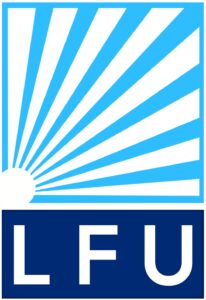Translation Studies as a Discipline
DOI:
https://doi.org/10.25212/lfu.qzj.6.3.38Keywords:
Translation, Multidisciplinary, Equivalence, Product, Process, Translation Studies, Transference.Abstract
No doubt translation studies can be considered as one of the most abstract and complex phenomenon, simply, because translation itself is the output of the abstractness of the mind of the speaker, writer, sender, addressor. As it is well-known, translation has been viewed differently due to its nature. It has been viewed in terms of finding equivalence, and in terms of transference of meaning. Still there are other views such as translation as a product, process, interlingual, intra-lingual, inter-semiotics, literary, non-literary. Added to these, it has been defined in terms of extent, level, rank, among many other views. Translation, also viewed in terms of types such as literary, scientific, legal, journalistic, medical, political, religious, among many other types. Consequently, it means that a translator must be a linguist, semanticist, pragmatist, stylist, phonologist, phonetician, morphologist, grammarian, among many other levels of linguistics and levels of semiotics. This means, that a would-be translator is needed in order to give an effective translation similar to that of the source language text. Hence, comes translation studies as a fully fledged discipline. Tackling such comprehensive discipline needs a multi-lingual translator as well as a multi-disciplinary study. As a result , our choice of “Translation as a Discipline” comes. Consequently, in this research a diachronic study as well as synchronic study will be given to cover both horizontal and vertical reviews of the term “Translation Studies”. The study ends with some conclusions showing the interdisciplinary nature of “Translation Studies”.
Downloads
References
Baker, M. (1998): “Translation Studies”. In: Baker, M. (ed.) Routledge Encyclopedia of Translation Studies, pp.277-280.
_________ (1992): In Other Words: A Coursebook on Translation, London and New York: Routledge.
_________ (1995): “Corpora in Translation Studies: an Overview and Suggestions for Future Research”. Target, Vol.7, No.2, pp.223-243.
_________ (1998): (ed.) Routledge Encyclopedia of Translation Studies, London and New York: Routledge.
_________ (2006): Translation and Conflict: A Narrative Account, London: Routledge.
Bassnett, S. (1991): Translation Studies, London and New York: Routledge. Bassnett, S. and Lefevere, A. (eds.) (1990): Translation, History and Culture, London: Pinter.
__________________________ (eds.) (1998): Constructing Cultures: Essays on Literary Translation, Cleveland and Philadelphia: Multilingual Matters.
Bassnett, S. and Trivedi, H. (eds.) (1999): Post-Colonial Translation: Theory and Practice, London and New York: Pinter
Congrat-Butlar, S. (ed.) (1979): Translation and Translators, New York: Bowker.
Cronin, M. (2003): Translation and Globalization, London: Routledge.
Delisle, J. and J. Woodsworth (eds.) (1995): Translators Through History, Amsterdam and Philadelphia, PA: John Benjamins.
Derrida, J. (2001): “What is a Relevant Translation” Translated by Venuti, L. Critical Inquiry Winter, pp.174-200.
Gentzler, E. (1993): Contemporary Translation Theories, London and New York: Routledge.
Gile, D. (1995): Basic Concepts and Models for Interpreter and Translator Training, Amsterdam: John Benjamins.
Hatim, B. (1997): The Translator as Communicator, London and New York: Routledge.
________ (2001): Teaching and Researching Translation, London and New York: Longman.
Hatim, B. and Mason, I. (1990): Discourse and the Translator, London and New York: Longman.
Holmes, J. S. (1970): The Nature of Translation: Essays on the Theory and Practice of Literary Translation, The Hague: Mouton.
___________ (1992): An Introduction to Sociolinguistics, London: Longman. ___________ (1994): Translated! Papers on Literary Translation and Translation Studies. Amsterdam: Rodopi.
___________ (1995): Women, Men, and Politeness, London: Langman.
Holmes, J. S. Frans de Haan, and Anton Popovit (eds.) (1970): The Nature of Translation, The Hague: Mouton.
Munday, J. (2001): Introducing Translation Studies: Theories and Applications, London &New York: Routledge.
Snell-Hornby, M. F. P. and Kaindl, K. (eds.) (1994): Translation Studies: An Interdiscipline, Amsterdam: John Benjamins.
Toury, G. (1995): Descriptive Translation Studies and Beyond, Amsterdam and Philadelphia: John Benjamins.
Wilks, Y. (1998): “Artificial Intelligence”. In: Mey, J. and Asher, R. (eds.), Concise Encyclopedia of Pragmatics, pp.51-61.
Downloads
Published
How to Cite
Issue
Section
License
Copyright (c) 2021 Misbah Mahmood AL-Sulaimaan

This work is licensed under a Creative Commons Attribution-NonCommercial-ShareAlike 4.0 International License.
Qalaai Zanist Journal allows the author to retain the copyright in their articles. Articles are instead made available under a Creative Commons license to allow others to freely access, copy and use research provided the author is correctly attributed.
Creative Commons is a licensing scheme that allows authors to license their work so that others may re-use it without having to contact them for permission











